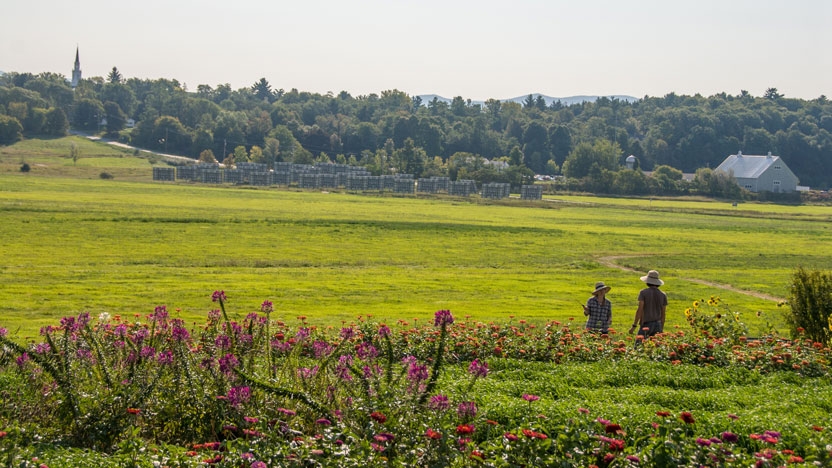Resources

Food Studies Engagement at Middlebury
The Food Studies Program at Middlebury covers all the ways that students can study food, ranging from production through diverse diets and waste management. Middlebury has courses on hunger and food security, sustainable production practices through agroecology, food power and justice, gender and food, and cultural aspects of food (e.g., Asian-American, Italian, Brazilian, Middle Eastern). The Food Studies Program coordinates with extra-curricular opportunities such as internships and programs at The Knoll, career counseling through the Center for Careers & Internships, student organizations, and opportunities for service learning or volunteer work with organizations outside the College through the Center for Community Engagement.
How You Can Engage with Food Studies at Middlebury
Cocurricular Resources
Students in food studies have access to Middlebury’s comprehensive engaged learning resources for learning in the world and about the world.
Student Organizations
Study Beyond Vermont
There are several options for studying outside Vermont, including the following:
- Middlebury Institute of International Studies
- School Abroad in Puerto Rico
Food Studies Abroad are tracks within Middlebury’s Study Abroad programs. If you sign up for the food studies track, you will take food- or agriculture-related courses at the host university and engage in an internship. You will need to have intermediate or advanced proficiency in the language for these programs.
IIn addition, there are excellent international programs offered outside Middlebury College, focusing on food issues, which do not require foreign language proficiency. In most cases, you will have to pay your own way; but the program may be worth the extra expense to you. Please be aware that Middlebury will not accept course credit from food-related programs other than SIT. A few that stand out:
- The Program in Food, Sustainability, and the Environment (FSE) at Umbra Institute in Perugia, Italy, offers curricular concentrations in Food Studies and Environmental Studies and Sustainability. Students take an Italian class and then choose three or four food- or sustainability-related courses. All courses include cocurricular field trips, and students earn a certificate. Food-related internships are also available.
- The School for International Training offers semester and summer programs in 80 countries on a variety of themes including the politics of land and water, sustainability, environment, and climate change.
- Crete’s Culinary Sanctuaries on the island of Crete, Greece, offers courses focusing on nature, culture, cooking and traditional cuisine, and organic agriculture.
Jobs and Internships
Looking for a job or internship in the farm and food systems movement? Check out these job-seeking resources at the Northeast Sustainable Agriculture Working Group (NESAWG), a network of over 500 participating organizations and thousands of individuals carrying out farm and food systems endeavors in 12 states and Washington, D.C.
Career Pathways
Food Studies is a rapidly growing field, so some of the jobs that Middlebury graduates will fill have not been created yet. Regardless of the work you do, your liberal arts education will help you to be comfortable with multiple perspectives on the human/environment interface. Some of the key skills that will become increasingly important for jobs in food and agriculture are the ability to analyze and understand systems; to work well in teams of people who have different perspectives and backgrounds, as well as independently; to understand how racial and social inequity affect food and resource access; and to communicate orally, in writing and with figures and graphs.
What can you do with a Food Studies Minor?
Careers in the Field
Discover what’s next with the Center for Careers and Internships (CCI)! As you embark on your post-Middlebury journey, CCI’s staff is available to help guide you.
- Explore their comprehensive Major Guides, which provide suggestions for campus involvement, internships, and real-life career examples of Middlebury alumni.
- Connect with alumni and professionals worldwide through Midd2Midd, Middlebury’s exclusive networking platform designed to foster meaningful mentorships and industry connections.
- Navigate the various career paths associated with your major through CCI’s Career Communities Pages, offering valuable advice from our advisors and tailored recommendations for jobs, and internships.
- Stay updated on the latest job and internship opportunities with Handshake, ensuring you never miss a chance to gain practical experience in your chosen field.
